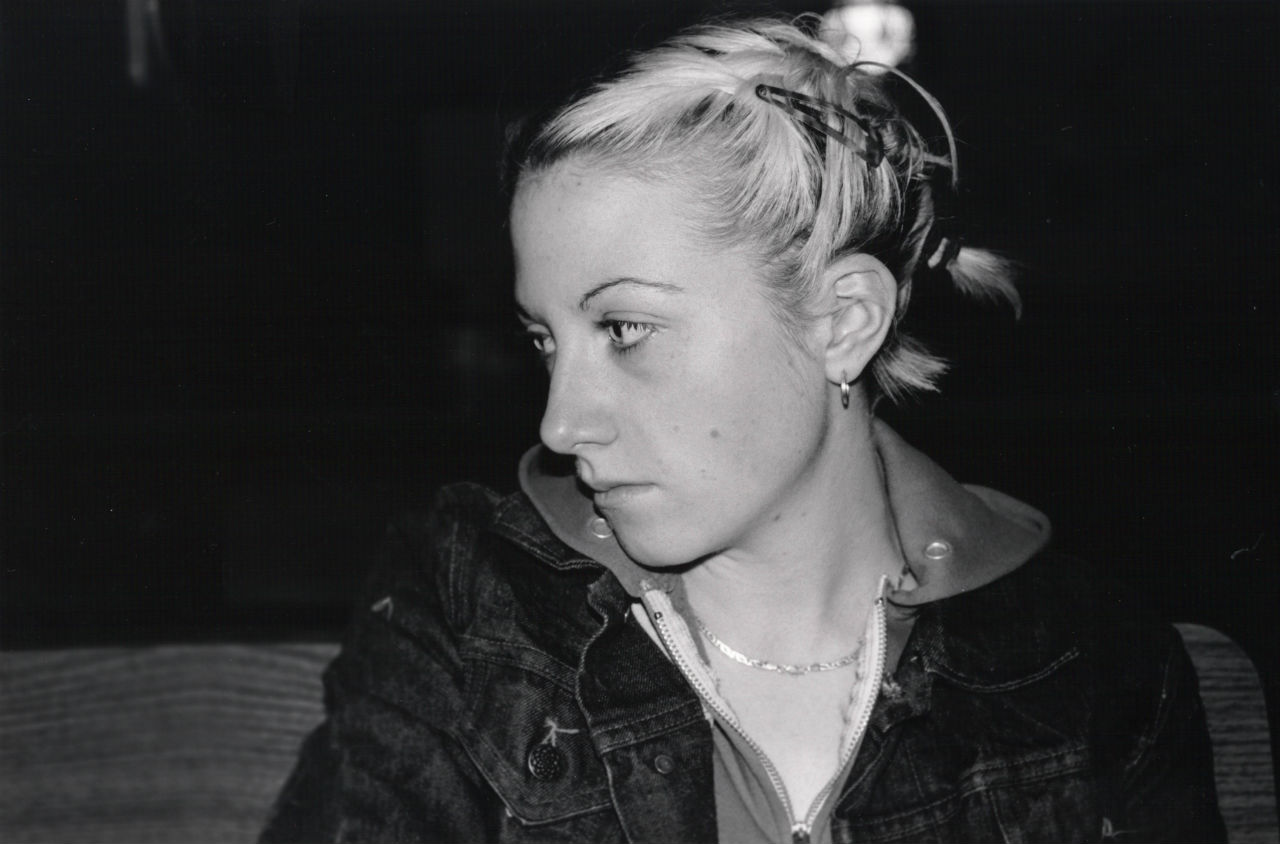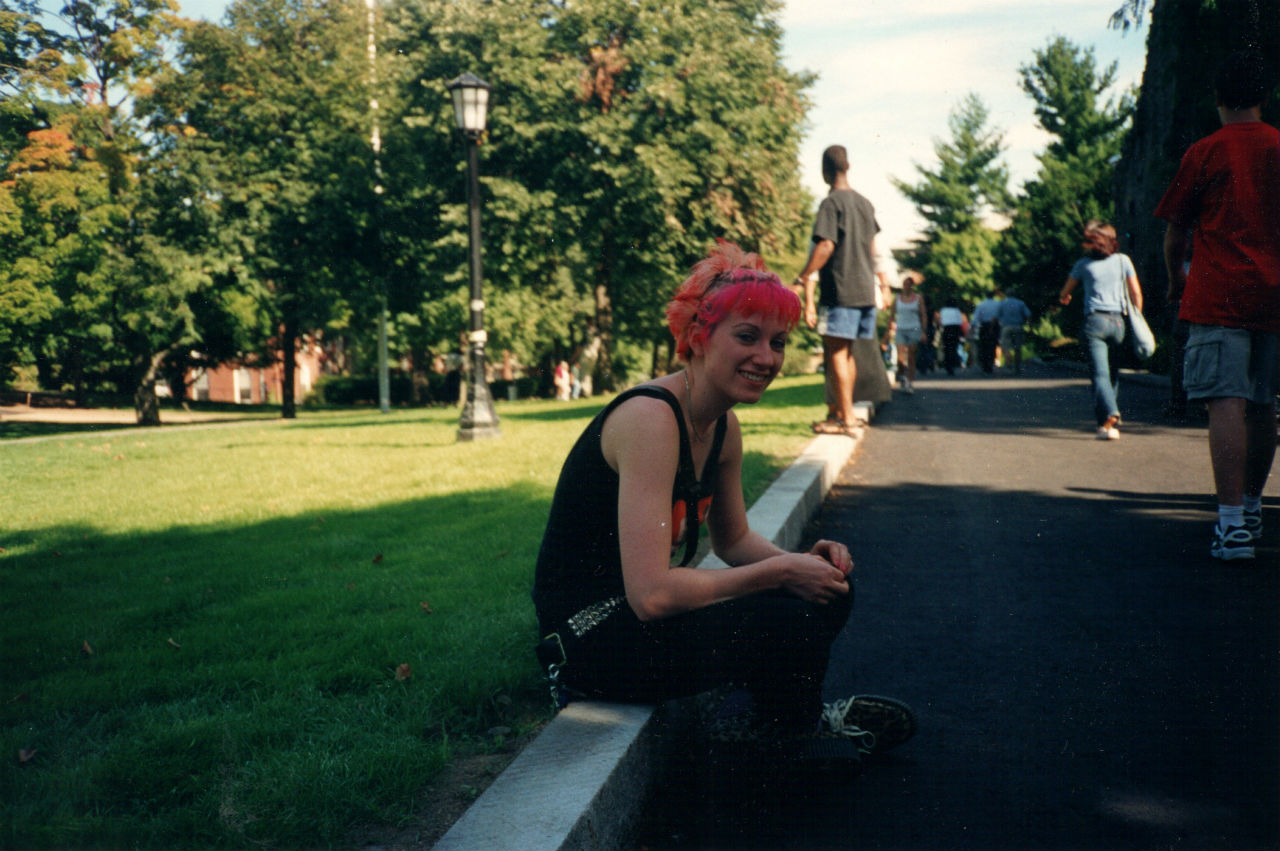Interview // Heather Christle
By Diana Khoi Nguyen | Contributing Writer
Heather Christle is the author of four poetry collections, including Heliopause (Wesleyan University Press) and The Trees The Trees (Octopus Books), which won the 2012 Believer Poetry Award. Her poems have appeared in publications including Boston Review, Gulf Coast, The New Yorker, and The Best American Poetry. She has taught poetry at Antioch College, Sarah Lawrence College, the University of Massachusetts Amherst and Emory University, where she was the 2009-2011 Poetry Writing Fellow. A native of Wolfeboro, New Hampshire, she lives in Yellow Springs, Ohio.


You’ve shared that you read “an abominable amount of detective fiction”—as do I! I’m terribly partial to noir and love Raymond Chandler, Ross McDonald, Dashiell Hammett, etc. Would you mind sharing any detective authors/titles you love? Your non-detective fiction authors are fantastic (Charles Dickens, Lydia Davis, Joy Williams, Virginia Woolf). I know that the first poet you became aware of was William Blake. Who else do you often return to, and who were your earliest writing crushes (prose and/or poetry)?
I read a lot of P.D. James, Dorothy Sayers, Agatha Christie, Colin Dexter, Fred Vargas, and Edith Pargeter. Not so hard-boiled! More like poached. In the non-detective realm I return to the people mentioned above, plus, oh, so many others. Inger Christenson, Alice Oswald, Vasko Popa, Evie Shockley, James Schuyler, Mary Ruefle, Harryette Mullen, Cathy Wagner, W.S. Graham, Danniil Kharms, Julio Cortazar…
Early on, in college I loved Tennyson and Keats. And Euripides!
Of course Euripides! I love the diversity of these authors—a veritable United Nations of writers!
I had the wonderful opportunity to participate in the Juniper Summer Writing Institute back in 2010, where we first met. I’ll never forget the swimming hole that I jumped into from a high cliff! What was your MFA like at UMass Amherst—amidst the swimming holes and other wonders?
It was magical. I met and fell in love with my husband, Christopher DeWeese, in my first workshop (taught by Dara Wier). And I fell in love with so many friends there too, with their poems, with their jokes, with their generous and weird ways of being in the world. I felt free to write and read whatever I needed to, and had so much time to do it in. Everyone was bursting with good ideas and energy, making things all the time, far beyond the space of the page: rogue pizza deliveries, a play to be performed in a moving car, Golden Girls re-enactments, a system of names for weeks as we have for days or months. It was pretty glorious.
That is tremendous. How rhapsodic, eclectic, and utterly life-changing, what every MFA should be. I also met and fell in love with my partner in my first workshop (at Columbia University). We both have taken workshops with Dara (in Key West), though not at the same time.
Did you have any time between undergraduate and masters degrees? If so, what did you do during this time?
Yes, I had about a year and a half in between, most of which I spent living in NYC, where I worked as an intern for Symphony Space and then as an assistant to two women who lived on the Upper East Side. One was a marketing consultant and the other a real estate broker. I wrote and read every day, and went to as many readings as I could. I was very broke, and oscillated between feeling wildly excited about everything and utterly at sea.
It really is so brutal to survive as a broke writer in NYC, and I love hearing the different things people do to make a living.
I think one of the most difficult realities for a young poet is the post-MFA life. What did you do after finishing your MFA at Amherst?
I know what you mean, and until April 1 of my final year in the program I was really nervous about the future, but then I got a call from Emory University offering me a two-year fellowship I’d applied for, and so I was lucky enough to spend that time teaching undergraduate poetry workshops and working on my second and third books. It made a huge difference in my life, having more of that precious time to write.
Of course! Funded time is the lottery of a writer’s life. I didn’t realize you went straight from MFA to the Emory Fellowship. In the multiverse, what do you think you would have done if you hadn’t gotten a call from Emory?
In the multiverse, I would probably have stayed in Northampton (which is my most-beloved place), and pieced together an adjuncting work-life. This is, by the way, what I did in the two years after the Emory fellowship ended. I couldn’t have done that if it hadn’t been for schools that pay their contingent faculty more than the abysmal nationwide average and offer health insurance. (The UMass unions have done such important work on this front.)
I read that you once wished you could have been president, or a mail person—and that you sometimes fantasize about delivering mail. What kind of mail person do you envision yourself being? I like to think it might be a cross between a scene from Louie and Mark Strand’s “The Mailman,” (except with a woman, of course).
I think I might want to identify more with Creeley’s “Dishonest Mailman”: “I see the flames, etc. / But do not care, etc.”
Ah, that’s perfect. A kind of “return to sender”—that is, a return to an origin of life on this planet—to the core of the earth, that magma, fiery place. Also, “Dishonest Mailman” would make for such a good social media “About Me” response.
When did you know you wanted to be a teacher?
I can’t recall a specific moment, but I know the development of my passion for teaching came with the realization that it is a creative medium, that the classroom is a space for artistic practice, improvisation, and imagination. I love to dream up new ways for students to encounter language, and to cooperatively create opportunities for words to do what they want.
It certainly is—and I love, too, how what you dream up is shaped by meeting and interacting with the students, and that each class can vary so much from term to term.
Like yourself, I’m also a daily napper and understand how Mad Men’s Don Draper’s naps (minus the alcoholism) can aid in creative thinking and production. Have any of your naps ever influenced your work or production of a poem?
Only in that they help me to relax and feel at ease enough in my body that I can more readily get into the sometimes uneasy space of a poem.
Outside of childhood, have you ever felt like you are living in the future—are there any recent instances of this?
Yes! The news that researchers are working on splicing the DNA of an extinct woolly mammoth with an elephant catapults me into Tomorrowland, as does, less happily, the daily recognition of the widespread impact of climate change.
As a young person working on her first book, what I always have to ask is: How did you get your first book published?
I sent my first manuscript out to a few different venues, one of which was the Octopus Books contest. I knew I felt a sense of kinship with them, and that has grown stronger in the years since Zach called to say they wanted to publish The Difficult Farm. I love Octopus. I love the books they publish and the fun I have in their company.
What polarizing feelings—how can we not feel ambivalent about the future? Speaking of time, If you could talk to a younger Heather, say, Heather in her mid-20s, what would you tell her?
I would tell her I think of her with much tenderness, and she would roll her eyes at me.
Do you have any advice to young writers who are struggling now?
It would depend, I suppose, on the nature of their struggles, but I think good general advice would be:
Assume good will whenever you can. Be as vulnerable as you can safely manage. Get inside language. Return to art you love or hate and allow your understanding to change. Keep going. If you become too deeply sad, call out for help. Form questions. Learn to sit quietly with yourself. Know that literature is also still young.
Do you have any young HC photos you wouldn’t mind sharing with us?
Here’s one of me as a Very Serious high school student,

and another my first day of college.

—
Born in California, Diana Khoi Nguyen is currently a PhD candidate in creative writing at the University of Denver. Her poems appear or are forthcoming in Poetry, American Poetry Review, PEN America, The Iowa Review, and elsewhere. www.dianakhoinguyen.com
